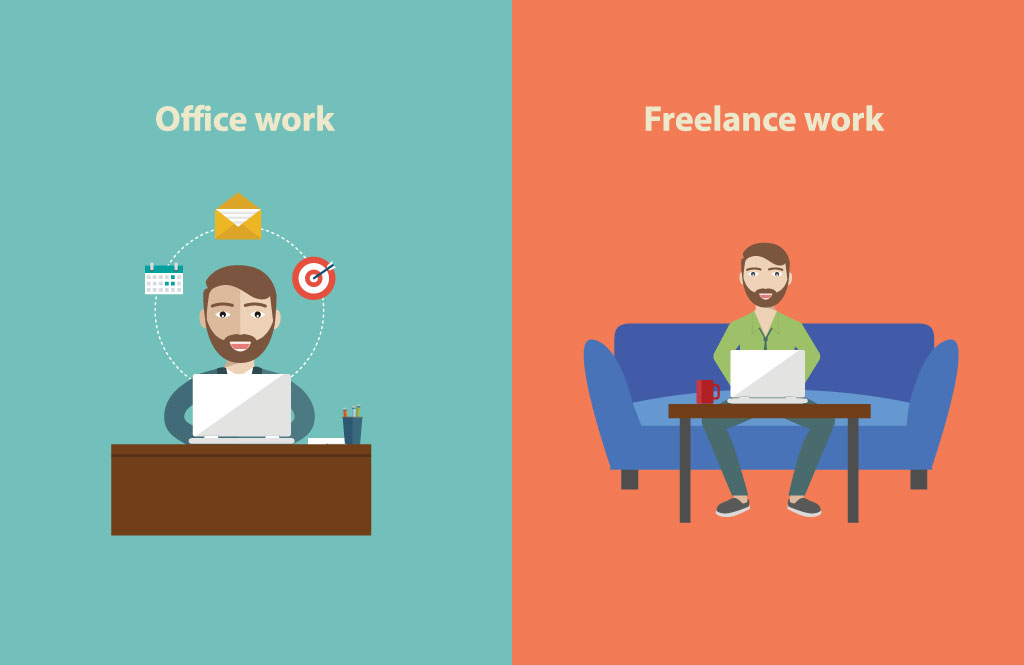
Building the right team is essential for any business to perform well, and deciding whether to hire freelancers or full-time employees can make all the difference. Both options offer unique benefits, depending on your needs and goals. Let’s explore how hiring freelancers and full-time employees can positively impact your business and why you might consider incorporating both into your workforce.
The Flexibility and Expertise of Freelancers
Freelancers have become an increasingly popular choice for businesses looking to complete projects efficiently and cost-effectively. They are independent professionals who bring specialized skills and can adapt quickly to specific business needs.
Benefits of Hiring Freelancers:
- Adaptable Work Schedules: Freelancers have the freedom to work on flexible schedules. This means they can often adjust their availability to match your business’s project timelines, providing faster turnarounds when needed.
- Cost Efficiency: Businesses save money by hiring freelancers because you pay them only for the work they do. This eliminates costs associated with benefits, office space, and long-term commitments. For one-off projects or seasonal needs, freelancers are a budget-friendly option.
- Specialized Expertise: Many freelancers specialize in specific fields such as graphic design, content writing, web development, or marketing. By hiring a freelancer, you gain access to focused skills and up-to-date industry knowledge. If you’re searching for top-rated freelancers for hire, you’ll find professionals who excel in their niche.
- Global Talent Pool: Freelancers often work remotely, enabling businesses to hire talent from anywhere in the world. This opens up opportunities to collaborate with diverse professionals who bring fresh perspectives and unique approaches to your projects.
- Scalability: Freelancers allow businesses to scale their workforce quickly. Whether you’re ramping up for a big campaign or tackling a one-time project, you can bring in freelancers to meet your specific needs without long-term obligations.
- Project-Based Efficiency: Freelancers focus on completing specific tasks, ensuring that projects are executed efficiently and to a high standard. Their ability to deliver results without extensive onboarding makes them ideal for short-term engagements.
The Stability and Commitment of Full-Time Employees
Full-time employees are the backbone of many businesses. They provide consistency and are deeply invested in the organization’s success. Companies often rely on them to manage daily operations and contribute to long-term growth.
Benefits of Hiring Full-Time Employees:
- Reliability and Stability: Full-time employees are committed to your business and are less likely to leave mid-project. This stability ensures that key responsibilities are consistently managed over time.
- Cultural Alignment: Full-time employees become an integral part of your company culture. They align with your values, mission, and vision, fostering a strong sense of teamwork and collaboration.
- Structured Growth Opportunities: Many full-time roles come with defined career paths and development programs. These opportunities help employees grow within the organization, increasing loyalty and long-term engagement.
- Consistency in Operations: Unlike freelancers, full-time employees work set hours and are available during regular business operations. This ensures seamless communication and a reliable workflow across departments.
- Comprehensive Benefits: Offering benefits like health insurance, paid time off, and retirement plans can attract top talent. These perks not only improve job satisfaction but also help retain skilled employees.
- Team Collaboration: Full-time employees have the advantage of working closely with their colleagues daily. This proximity fosters better communication and collaboration, making them essential for team-driven tasks and long-term projects.
Choosing the Best Option for Your Needs
Deciding between freelancers and full-time employees depends on your specific goals and the nature of the work. Here are some scenarios where each option excels:
- Freelancers: Ideal for businesses needing specialized skills, short-term support, or help with seasonal fluctuations. They’re perfect for project-based work like redesigning a website, creating a marketing campaign, or handling one-off assignments.
- Full-Time Employees: Best suited for roles that require consistency, in-depth company knowledge, and long-term commitment. They’re essential for positions like management, customer support, or ongoing operations.
Combining Freelancers and Full-Time Employees
Many businesses find that a hybrid workforce a mix of freelancers and full-time employees provides the best of both worlds. This approach allows you to maintain a stable core team while bringing in freelancers for specialized tasks or short-term needs. For example:
- Your full-time marketing team manages daily campaigns, while freelance graphic designers or writers contribute creative assets for specific projects.
- A software company may employ full-time developers for maintenance and hire freelancers for new feature development or testing.
- Seasonal businesses can rely on full-time employees for core operations while scaling up with freelancers during peak times.
Making an Informed Decision
When deciding which option is right for your business, consider these factors:
- Budget: Freelancers are cost-effective for short-term needs, while full-time employees provide value for long-term growth.
- Project Scope: Freelancers excel in completing specific tasks, while full-time employees are better for ongoing responsibilities.
- Cultural Fit: Full-time employees integrate into your company culture, while freelancers work independently.
- Flexibility Needs: Freelancers offer adaptability, while full-time employees provide consistency.
Conclusion
Both freelancers and full-time employees bring unique benefits to the table. By understanding the strengths of each and carefully assessing your business needs, you can create a workforce strategy that drives success. Whether you choose to focus on freelancers, full-time employees, or a combination of both, the key is to align your hiring decisions with your goals and ensure your team supports your vision for the future.





Leave a Reply